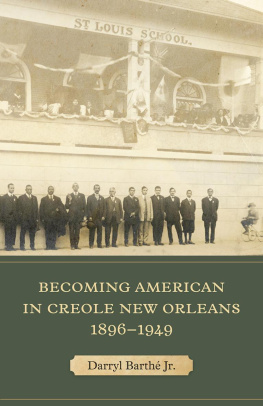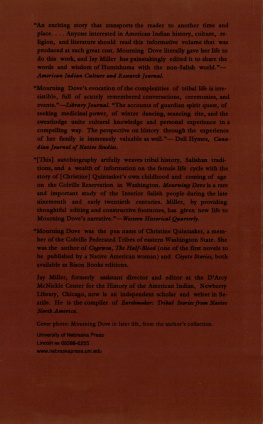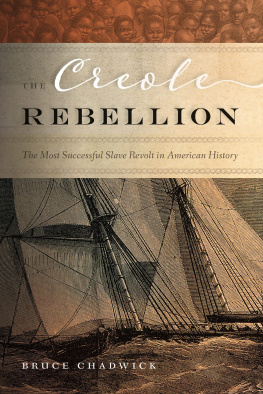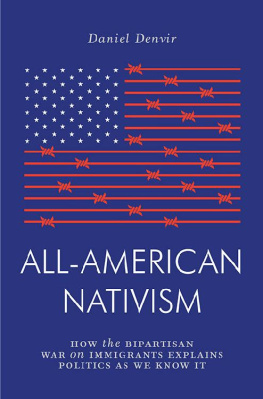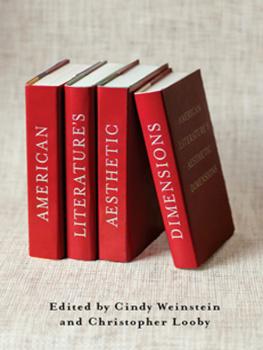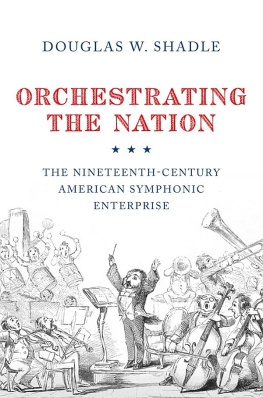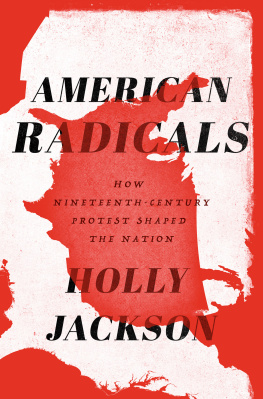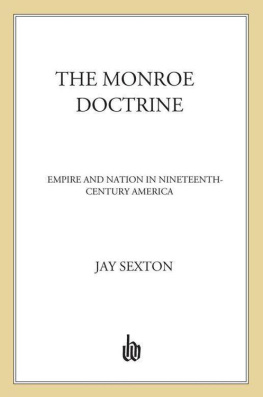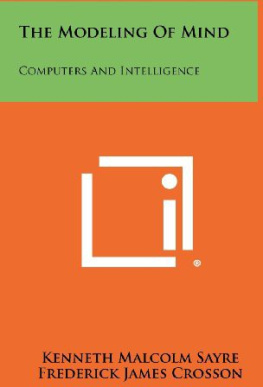Jillian Sayre - Mourning the Nation to Come: Creole Nativism in Nineteenth-Century American Literatures
Here you can read online Jillian Sayre - Mourning the Nation to Come: Creole Nativism in Nineteenth-Century American Literatures full text of the book (entire story) in english for free. Download pdf and epub, get meaning, cover and reviews about this ebook. year: 2019, publisher: LSU Press, genre: Religion. Description of the work, (preface) as well as reviews are available. Best literature library LitArk.com created for fans of good reading and offers a wide selection of genres:
Romance novel
Science fiction
Adventure
Detective
Science
History
Home and family
Prose
Art
Politics
Computer
Non-fiction
Religion
Business
Children
Humor
Choose a favorite category and find really read worthwhile books. Enjoy immersion in the world of imagination, feel the emotions of the characters or learn something new for yourself, make an fascinating discovery.

- Book:Mourning the Nation to Come: Creole Nativism in Nineteenth-Century American Literatures
- Author:
- Publisher:LSU Press
- Genre:
- Year:2019
- Rating:3 / 5
- Favourites:Add to favourites
- Your mark:
- 60
- 1
- 2
- 3
- 4
- 5
Mourning the Nation to Come: Creole Nativism in Nineteenth-Century American Literatures: summary, description and annotation
We offer to read an annotation, description, summary or preface (depends on what the author of the book "Mourning the Nation to Come: Creole Nativism in Nineteenth-Century American Literatures" wrote himself). If you haven't found the necessary information about the book — write in the comments, we will try to find it.
Jillian Sayre: author's other books
Who wrote Mourning the Nation to Come: Creole Nativism in Nineteenth-Century American Literatures? Find out the surname, the name of the author of the book and a list of all author's works by series.
Mourning the Nation to Come: Creole Nativism in Nineteenth-Century American Literatures — read online for free the complete book (whole text) full work
Below is the text of the book, divided by pages. System saving the place of the last page read, allows you to conveniently read the book "Mourning the Nation to Come: Creole Nativism in Nineteenth-Century American Literatures" online for free, without having to search again every time where you left off. Put a bookmark, and you can go to the page where you finished reading at any time.
Font size:
Interval:
Bookmark:
MOURNING THE
NATION TO COME
NATION TO COME
Creole Nativism in Nineteenth-Century American Literatures

JILLIAN J. SAYRE

Louisiana State University Press
Baton Rouge
Published with the assistance of the Rutgers Research Council
Published by Louisiana State University Press
Copyright 2019 by Louisiana State University Press
All rights reserved
Manufactured in the United States of America
First printing
Designer: Laura Roubique Gleason
Typeface: Garamond Premier Pro
Printer and binder: Sheridan Books
A modified version of Chapter 1 was first published in Elizabeth Fenton and Jared Hickmans Americanist Approaches to the Book of Mormon (London: Oxford University Press, 2019).
Chapter 2 appeared in a different format as The Necropolitics of New World Nativism in Early American Literature, 53#, no.3 (Fall 2018): 713744.
Portions of chapter 4 appear here, in modified form, courtesy of the Papers of the James Fenimore Cooper Society (2011).
Library of Congress Cataloging-in-Publication Data
Names: Sayre, Jillian J., author.
Title: Mourning the nation to come / Jillian J. Sayre.
Description: Baton Rouge : Louisiana State University Press, 2020. | Based on the authors dissertation (doctoral)University of Texas, Austin, 2010. | Includes bibliographical references and index.
Identifiers: LCCN 2019030783 (print) | LCCN 2019030784 (ebook) | ISBN 978-0-8071-7189-9 (cloth) | ISBN 978-0-8071-7284-1 (pdf) | ISBN 978-0-8071-7285-8 (epub)
Subjects: LCSH : Nationalism in literature. | Death in literature. | Grief in literature. | Indigenous peoples in literature. | American literature19th centuryHistory and criticism. | Latin American literature19th centuryHistory and criticism. | Brazilan literature19th centuryHistory and criticism.
Classification: LCC PN56.N19 S39 2020 (print) | LCC PN56.N19 (ebook) | DDC 809.9/897dc23
LC record available at https://lccn.loc.gov/2019030783
LC ebook record available at https://lccn.loc.gov/2019030784
The paper in this book meets the guidelines for permanence and durability of the Committee on Production Guidelines for Book Longevity of the Council on Library Resources. 
For Nathan and Lewis, inmemoriam
Contents
1.
Books Buried in the Earth
2.
Sovereign Tears, or, The Indian Is History
3.
The Shadow of the (m)Other
4.
Mother Tongues: Translating the Nation
Acknowledgments
During the long process of planning, researching, writing, and rewriting this book I have accumulated more debts than I can possibly acknowledge here. I beg your patience, dear reader, as I mention a few.
This book originated in my doctoral work in Comparative Literature at the University of Texas at Austin. To Elizabeth Richmond-Garza and all the faculty who supported me there I send my unbounded gratitude. I owe particular debts to Martin Kevorkian, Neville Hoad, Jossianna Arroyo-Martnez, Josh Gunn, Diane Davis, and Nicolas Shumway, who all shaped in their own ways the foundations of this book. I thank the Graduate School at UT-Austin for the dissertation fellowship that allowed me to complete much of the research that remains central to this study. Thank you to Walter Edwards and the Humanities Center at Wayne State University for providing space and community to work on the project while it was still in its early stages. This project has also received support from the Rutgers Research Council, and I would like to thank the council and the Rutgers community for helping grow the work of early career scholars like myself. Rutgers-Camden is a wonderful home for me and my work and I am endlessly thankful for the support Ive received here both in general and for this project in particular. Special thanks to Tyler Hoffman, Lisa Zeidner, and the whole English Department, as well as to Kris Lindenmeyer and Howard Marchitello in the College of Arts and Sciences.
I would also like to thank James Long and everyone at LSU Press for all their work in making this book a reality. Jo Ann Kiser has been a patient and thoughtful copy editor, and I am so grateful to have been paired with her. A book is nothing without good readers and this project owes all of its current success and none of its shortcomings to a litany of generous scholars who have lent their time and expertise to the work. The project took a decisive turn at the First Book Institute at the Center for American Literary Studies at Pennsylvania State University. To Sean Goudie, Priscilla Wald, and all the participants at the First Book Institute I thank you for your insightful responses to the project. I would also like to thank Jared Hickman, Liz Fenton, and the reviewers for the AmericanistApproachestotheBookofMormon for helping me reshape chapter 1. Kirsten Silva Gruesz, Rodrigo Lazo, and the reviewers for the EarlyAmericanLiterature special issue on the Spanish Americas have made a lasting impression on chapter 2. To all the organizers and audiences at conferences for the Society of Early Americanists and C19 where Ive tried out some of the ideas in this book, I thank you for all the ways you have helped me think in new and more generous ways about these texts. Thanks to Brooke Hunter, Erin Hurt, and the Philly writing group for helping me think about how I framed the project. Kathryn Hamilton Warren and Alberto Varon offered me sympathy, encouragement, and margaritas at a difficult time in the process and for that I am forever grateful. At Rutgers, Holly Blackford, Carol Singley, and Howard Marchitello all provided generous feedback on my writing. Robert A. Emmons Jr. helped me digitize images for the manuscript. Kevin Bourque implanted the earworm of John Browns Body so many years ago, which I could only expel by taking the joke seriously and writing about it endlessly. Molly OHagan Hardy has been my guide in and out of the archives; she is an invaluable source for new and better ideas, and a most amazing friend. For letting me mull endlessly over two dead mothers, for his generous readings and generative responses, for his continuing mentorship and faith in the project, and of course for pointing me to Emersons return to his wifes casket so many years ago, I owe Martin Kevorkian a second round of thanks. And where would I be without Lindsay DiCuircis help with my writing, my research, and my conference anxiety? I dont know and I dont care to find out.
Finally, and in a helplessly inadequate way, I want to thank my families for all their love and support. To my Mom, Dad, Judi, Jim, and Janet, all I can say in the end is thanks. To my sisters and nieces, I likewise extend my gratitude. You all are a fierce bunch of women and inspire me every day. To Linus, it has been a delightand a challengewatching you grow. Thank you for teaching me patience and the ukulele. You are an amazing kid. And to Jim Brown, for all the ways you have and continue to support my work. You make my life and my writing better. Thank you. This book is dedicated to my brother, whom I lost when I was quite young, and my stepfather, who passed while this project was just getting off the ground. I inscribe them here as a memorial of sorts, one that recognizes their (continued) impression upon my work and upon me.
MOURNING THE
NATION TO COME
Introduction
The Book Is a Grave
That is the gods work, spinning threads of death
Next pageFont size:
Interval:
Bookmark:
Similar books «Mourning the Nation to Come: Creole Nativism in Nineteenth-Century American Literatures»
Look at similar books to Mourning the Nation to Come: Creole Nativism in Nineteenth-Century American Literatures. We have selected literature similar in name and meaning in the hope of providing readers with more options to find new, interesting, not yet read works.
Discussion, reviews of the book Mourning the Nation to Come: Creole Nativism in Nineteenth-Century American Literatures and just readers' own opinions. Leave your comments, write what you think about the work, its meaning or the main characters. Specify what exactly you liked and what you didn't like, and why you think so.

